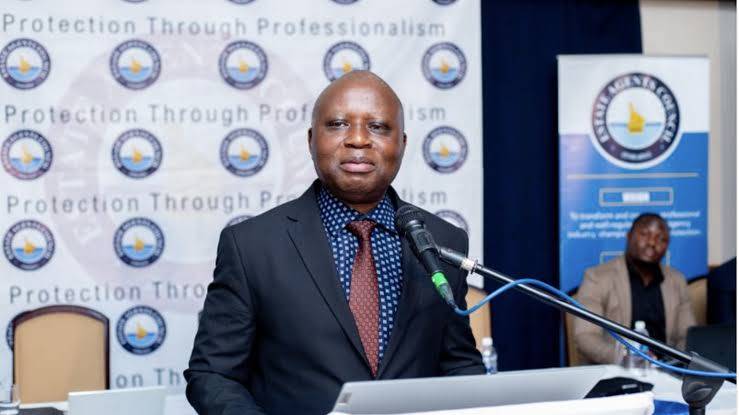By Ivo Takor, mni, Esq.
INTRODUCTION
The development of Nigeria’s local government system can be traced back to the Native Authority Ordinance of 1916. Democratically elected councils were first established in 1950 in Lagos and the Ibibio areas of the old Calabar Province in Eastern Nigeria. A significant transformation occurred with the 1976 local government reform carried out by the military administration under General Olusegun Obasanjo, which introduced uniformity in the administrative structure of local governments across the country. This reform implemented a multi-purpose single-tier structure nationwide and clearly defined local government as an entity operating at the local level through representative councils established by law, with specific powers within defined areas.
Section 7(1) of the Constitution of the Federal Republic of Nigeria 1999 (as amended) guarantees the system of local government by democratically elected local government councils.
The section provides that “The system of local government by democratically elected local government councils is under this Constitution guaranteed; and accordingly, the Government of every State shall subject to section 8 of this Constitution, ensure their existence, composition, finance and functions of such Councils”.
This provision mandates that state governments ensure the existence of councils, composition, finance, and functions of such councils, subject to Section 8 of the Constitution.
State governors have for decades unconstitutionally, undermined the autonomy of local governments by withholding funds intended for them and appointing caretaker committees instead of allowing for elected officials. This practice centralises power at the state level, depriving local governments of the financial resources and administrative independence necessary to function effectively.
The withholding of funds, meant to support local development and governance, restricts the ability of local governments to execute projects and provide services. The appointment of caretaker committees circumvents the democratic process, leading to governance that lacks accountability and responsiveness to local needs. This erosion of local government autonomy undermines grassroots development and weakens democratic institutions at the local level.
The erosion of local government autonomy by governors has faced widespread criticism from individuals and groups. Despite this backlash, the governors have ignored all the criticism and court rulings, including the Supreme Court’s ruling on the appointment of caretaker committees.
The appointment of caretaker committees by state governors therefore stands in conflict with this constitutional provision and here is how:
The Constitution explicitly guarantees local government by democratically elected councils. Appointing caretaker committees bypasses the electoral process, which goes against the principle of democracy enshrined in the Constitution.
The practice of appointing caretaker committees leads to governance issues, including lack of accountability and transparency, as these committees are not elected by the people and primarily serve the interests of the appointing authority rather than the local populace.
While Section 8 allows for the creation of new local government areas and the modification of existing ones, it does not provide for the replacement of elected councils with caretaker committees. The state governments’ responsibility is to conduct regular elections to ensure the local councils’ democratic legitimacy.
In summary, the appointment of caretaker committees by state governors is generally unconstitutional as it undermines the guaranteed democratic system of local government councils. Legal precedents and the clear wording of Section 7(1) support the view that such appointments are not aligned with the Constitution’s provisions.
The interplay between Sections 7(6) and 162(6) of the Constitution establishes a legal framework that collectively mandates the funding of local government councils from both the Federation Account and State governments accounts. Here’s a breakdown:
Section 7(6) provides that “subject to the provisions of this Constitution- (a) the National Assembly shall make provisions for statutory allocation of public revenue to local government councils in the Federation; and (b) the House of Assembly of a State shall make provisions for statutory allocation of public revenue to local government councils within the State”.
Section 162(6) provides that “Each State shall maintain a special account to be called “State Joint Local Government Account” into which shall be paid all allocations to the local government councils of the State from Federation Account and from the Government of the State”.
Together, these constitutional provisions ensure that local government councils receive funding from both federal and state sources, reinforcing their financial stability and enabling them to perform their functions effectively. This dual-funding mechanism supports the autonomy and operational capacity of local governments, aligning with the constitutional guarantee of local government by democratically elected councils.
In an effort to end the unconstitutional act by the governors, the Attorney General of the Federation, Lateef Fagbemi, SAN, had filed a lawsuit on behalf of the Federal Government, seeking to enforce full autonomy for the 774 local government councils in the country. It was no surprise that all 36 states, as defendants in the lawsuit, challenged the case.
On Thursday, July 11th 2024, the Supreme Court delivered a judgment affirming the autonomy of local governments, establishing that Nigeria operates a three-tier system of governance comprising the federal, state, and local governments, where no tier is subject to another.
The court ordered an immediate halt to the payment of local government funds from the Federation Account through states. The apex court held that the provisions of Section 162 of the Constitution, which stipulate a joint account for local governments, had been exploited by various state governments, thereby defeating the aim of the Constitution.
The court ordered an immediate halt to the payment of local government funds from the Federation Account through states. Additionally, the apex court prohibited governors from appointing caretaker committees and stopped the release of funds from the Federation Account for the benefit of local governments in states without a democratically elected local government system.
Applause for the Supreme Court’s ruling has been widespread and enthusiastic. It is hard to recall the last time the court received such accolades for any of its decisions. The judges may be quietly pleased with the Attorney General of the Federation for instituting the case. From President Bola Tinubu to Atiku Abubakar of the Peoples Democratic Party (PDP), the All Progressive Congress (APC), the Labour Party (LP), the Nigeria Labour Congress (NLC), the National Union of Local Government Employees (NULGE), the Association of Local Governments of Nigeria (ALGON), senior lawyers, and Civil Society Organizations, praise for the apex court’s ruling continues to pour in.
It is no surprise that the sole voice against the court ruling has come from James Ibori, a former governor of Delta.
The governors, represented by AbdulRazaq AbdulRahman, governor of Kwara state who is the Chairman of Nigeria Governors Forum, the umbrella union of all governors in Nigeria and flanked by Hope Uzodimma of Imo State, Chairman of APC Governors Forum and Dr. Bala Mohammed of Bauchi State, Chairman of PDP Governors Forum, expressed their relief at the Supreme Court’s judgment, stating that it alleviates the burden they faced.
According to a report in the Punch newspaper dated Saturday, July 13, 2024, AbdulRahman emphasized that governors are pleased with the devolution of power concerning local government autonomy. This was immediately after their meeting with President Bola Tinubu at the Presidential Villa, Abuja.
It is crucial to remind AbdulRazaq AbdulRahman that the judgment did not focus on the devolution of power regarding local government autonomy. Instead, it aimed to restore the power that he and his colleagues had usurped from the local governments back to them.
The battle for full autonomy for local governments has just begun with the Supreme Court judgment. Several challenges lie ahead. The implementation of the judgment in the area of release of funds is certain, given that the release of funds from the Federation Account is controlled by the Federal Government.
It will now become clear how much each state in the federation will allocate from its own resources to each local government council within the state.
It is preposterous to believe that governors will accept the ruling wholeheartedly without devising strategies to circumvent it by controlling the funds released and ensuring they maintain absolute control over the election of local government officials, which fall within their purview. The role of civil society, the media, and federal government oversight is crucial in ensuring compliance.












